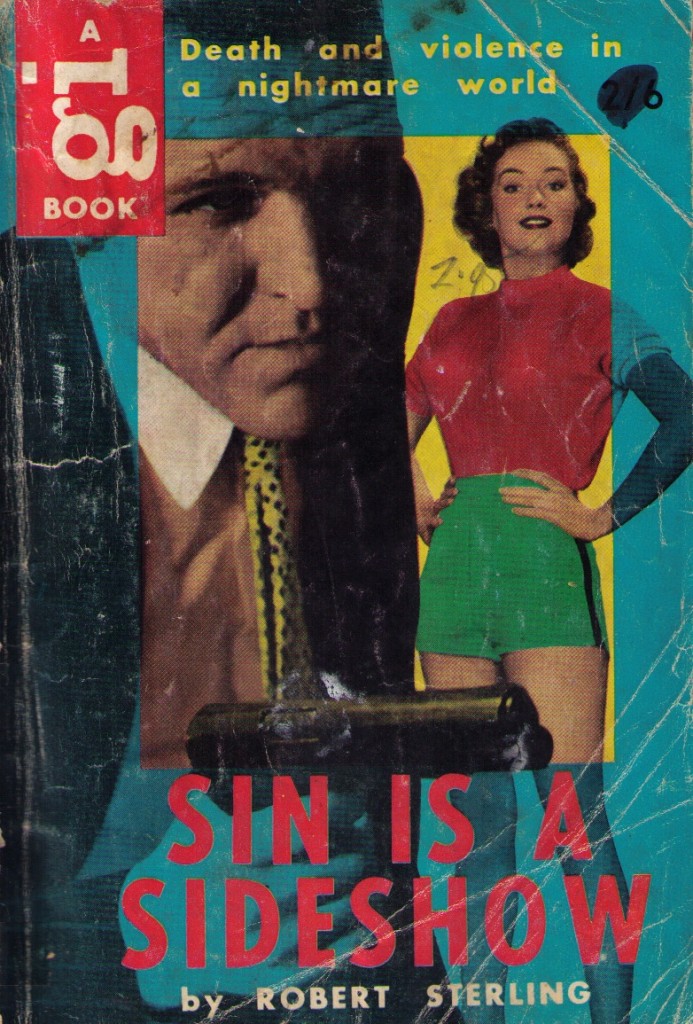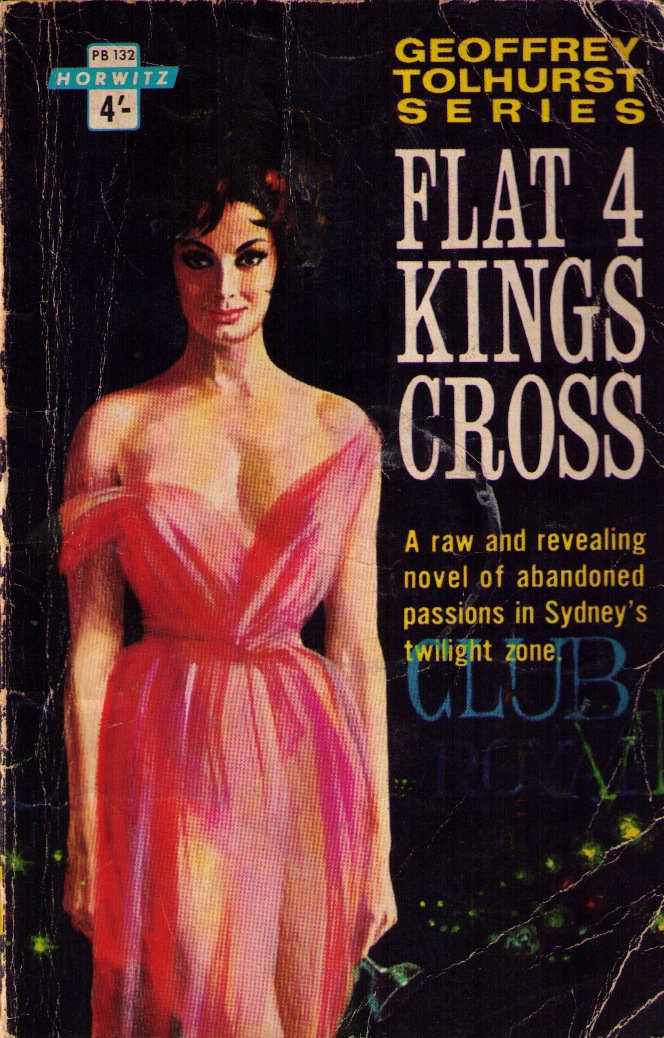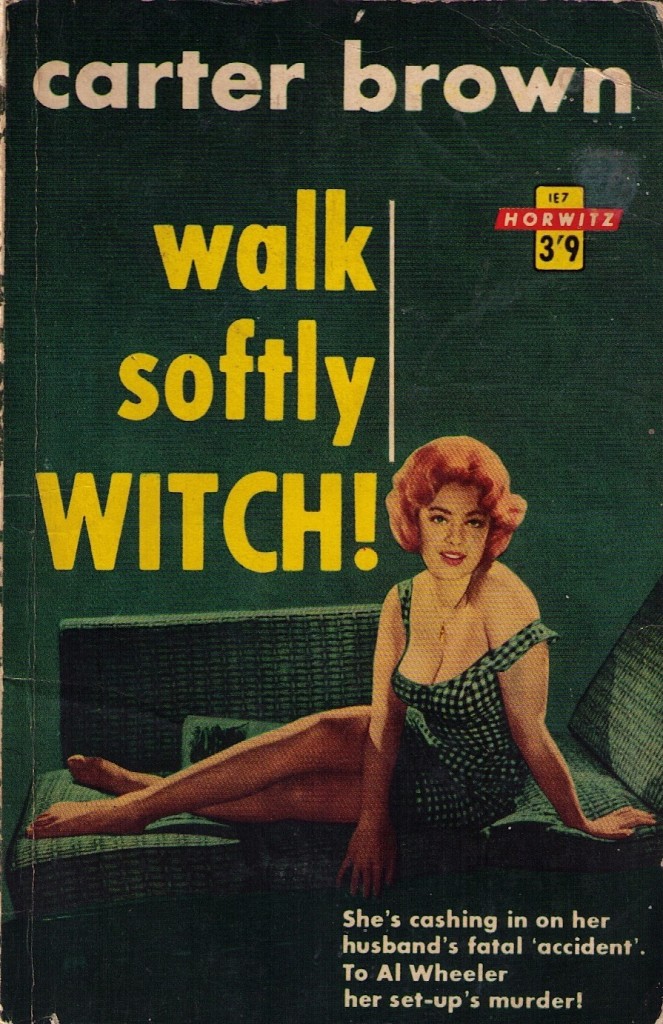Search
-
Recent Posts
- Dishing up Pulp Curry in a new way: why I am starting a Substack newsletter
- Book reviews: Deadly dames, midcentury Brit pulp and 1970s science fiction
- Mackenna’s Gold (1969): Gold, Ghosts and Frontier Violence
- Orphan Road book launch
- Orphan Road now available
- Pre-orders open for my new novel, Orphan Road
- Cover reveal: Orphan Road, my follow up to Gunshine State
- Breakfast in the Ruins podcast: New English Library Bikermania
- Why 1973 was the year Sidney Lumet took on police corruption
- Men’s Adventure Quarterly: Gang Girls issue
Categories
- 1960s American crime films
- 1970s American crime films
- 1980s American crime films
- 1990s American crime films
- Adrian McKinty
- Albert Dekker
- Andre De Toth
- Angela Savage
- Angie Dickinson
- Anthony Zerbe
- Asian noir
- Australian crime fiction
- Australian crime film
- Australian noir
- Australian popular culture
- Australian pulp fiction
- Australian television history
- Ava Gardner
- Beat culture
- Belmont Tower Books
- Ben Wheatley
- Billie Whitelaw
- Black pulp fiction
- Blaxsploitation
- Book cover design
- Book Reviews
- British crime cinema
- British pulp fiction
- Bryan Brown
- Burt Lancaster
- Carter Brown
- Charles Durning
- Charles Willeford
- Chester Himes
- Christopher G Moore
- Christopher Lee
- Cinema culture
- Claude Atkins
- Coronet Books
- Crawford Productions
- Crime Factory
- Crime Factory Publications
- Crime fiction
- Crime fiction and film from Africa
- Crime fiction and film from Cambodia
- Crime fiction and film from China
- Crime fiction and film from India
- Crime fiction and film from Indonesia
- Crime fiction and film from Japan
- Crime fiction and film from Laos
- Crime fiction and film from Latin and Central America
- Crime fiction and film from Malaysia
- Crime fiction and film from New Zealand
- Crime fiction and film from Scandinavia
- Crime fiction and film from Singapore
- Crime fiction and film from South Korea
- Crime fiction and film from Thailand
- Crime fiction and film from the Philippines
- Crime Fiction and film set in Vietnam
- Crime film
- Dangerous Visions and New Worlds Radical Science Fiction 1950 to 1985
- David Goodis
- David Peace
- David Whish-Wilson
- Derek Raymond
- Diana Dors
- Dirk Bogarde
- Don Siegel
- Don Winslow
- Donald Westlake aka Richard Stark
- Dystopian cinema
- Ernest Borgnine
- Eurocrime
- Fawcett Gold Medal Books
- Femme fatale
- Fernando Di Leo
- Filipino genre films
- Film Noir
- Forgotten Melbourne
- French cinema
- French crime fiction
- Garry Disher
- Gene Hackman
- George V Higgins
- Georges Simenon
- Ghost Money
- Giallo cinema
- Gil Brewer
- Girl Gangs, Biker Boys and Real Cool Cats: Pulp Fiction & Youth Culture, 1950-1980
- Gloria Grahame
- Gold Star Publications
- Gregory Peck
- Gunshine State
- Heist films
- Horror
- Horwitz Publications
- Humphrey Bogart
- Ian Fleming
- Interviews
- Ira Levin
- James Caan
- James Crumley
- James Ellroy
- James Hadley Chase
- James Woods
- Jim Brown
- Jim Thompson
- Joel Edgerton
- John Frankenheimer
- Joseph Losey
- Karen Black
- Kerry Greenwood
- Kinji Fukasaku
- Larry Kent
- Laura Elizabeth Woolett
- Lee Marvin
- Leigh Redhead
- Lindy Cameron
- M Emmet Walsh
- Mad Max
- Mafia
- Malla Nunn
- Martin Limon
- Megan Abbott
- Melbourne International Film Festival
- Melbourne Writers Festival
- Men's Adventure Magazines
- Michael Caine
- Michael Fassbender
- Mickey Spillane
- Monarch Books
- Ned Kelly Awards
- Neo Noir
- New English Library
- Newton Thornburg
- Noir Con
- Noir fiction
- Non-crime reviews
- Oren Moverman
- Orphan Road
- Ozsploitation
- Pan Books
- Parker
- Paul Newman
- Peter Boyle
- Peter Corris
- Peter Strickland
- Peter Yates
- Poliziotteschi
- Pulp fiction
- Pulp fiction in the 70s and 80s
- Pulp fiction set in Asia
- Pulp Friday
- Pulp paperback cover art
- Qui Xiaolong
- Raymond Chandler
- Richard Burton
- Richard Conte
- Robert Aldrich
- Robert Mitchum
- Robert Ryan
- Robert Stone
- Rock Hudson
- Roger Smith
- Rollerball
- Rosaleen Norton
- Roy Scheider
- Rural noir
- Sam Levene
- Sam Peckinpah
- Samuel Fuller
- Science fiction and fantasy
- Scripts Publications
- Sidney Lumet
- Sidney Poitier
- Simon Harvester
- Snowtown
- Snubnose Press
- Spies
- Stanley Baker
- Sterling Hayden
- Steve McQueen
- Sticking it the the Man Revolution and Counter Culture in Pulp and Popular Fiction 1950 1980
- Stuart Rosenberg
- Tandem Books
- Tart noir
- Tartan Noir
- Ted Lewis
- Toni Johnson Woods
- True crime
- Vicki Hendricks
- Victor Mature
- Vintage mug shots
- Vintage pulp paperback covers
- Wallace Stroby
- War film
- Westerns
- William Friedkin
- Woody Strode
- Yakuza films
- Yaphet Kotto
Nothing but noir
Recommended reading
The lurid world of pulp
- 20th century Danny Boy
- American Pulps
- Bear Alley
- Bloody, Spicy, Books
- Comics Down Under
- Everything second hand
- Existential Ennui
- Greenleaf Classic Books
- Irv O. Neil's Erotica is My Trade
- Killer Covers
- Lost Classics of Teen Lit 1939-1989
- Luminist Archives
- Men's Pulp Mags
- Mporcius Fiction Log
- Murder, Mayhem and Long Dogs
- Neglected Books
- Nocturnal Revelries
- Paperback Warrior
- Paperbacks of the Gods
- Pop Sensation
- Pulp artists
- Pulp Covers
- Pulp Crazy
- Pulp Flakes
- Pulp International
- Pulp Magazines Project
- Pulp Serenade
- Realms of the Night
- Romance Fiction Has a History
- Rough Edges
- Sin Street Sleaze
- Spy Guys and Gals
- The department of Afro American Research Arts & Culture
- The Dusty Bookcase
- The Haunted World of Richard Sala
- The Moon Lens
- The Nick Carter & Carter Brown Blog
- The Pulp & Paperback Fiction Reader
- Too Much Horror Fiction
- True Pulp Fiction
- Vault of Horror
- Vintage Nurse Romance Novels
- Vintage Romance Novels
- Welcome to the Pan Paperback
- Yellow and Creased
Support This Site
If you like what I do please support me on Ko-fi
Tag Archives: Toni Johnson-Woods
Melbourne launch of Girl Gangs, Biker Boys & Real Cool Cats: Pulp Fiction & Youth Culture, 1950-1980
Please join me on Monday, December 4, for the launch of Girl Gangs, Biker Boys & Real Cool Cats: Pulp Fiction & Youth Culture, 1950 to 1980, a book I have co-edited with my friend, Iain McIntyre.
The launch will take place from 6.30pm at one of Melbourne’s coolest second hand bookshops, Grub Street Bookshop, 379 Brunswick Street, Fitzroy. We’ll be doing live readings from some of the pulp novels included in our book. There will be cheap drinks available and, of course, you can buy a copy of the book.
Girl Gangs, Biker and Real Cool Cats is the result of four years work. It is the first comprehensive account of how the rise of postwar youth culture was depicted in Australian, American, and British mass market pulp fiction. It includes approximately 400 covers, many of them very rare, and 70 in-depth author interviews, illustrated biographies and articles regarding authors novelists who exploited and celebrated juvenile delinquents, beatniks, mods, bikers, hippies, skinheads, punks and a host of other subcultures.
I am really proud of this book and would love it if you could join Iain and I to launch it. This book will have very limited distribution in Australia, so for Melbourne folks, this is your ideal chance to snag a copy.
Posted in Australian popular culture, Australian pulp fiction, Book cover design, Girl Gangs, Biker Boys and Real Cool Cats: Pulp Fiction & Youth Culture, 1950-1980, Horwitz Publications, Pulp fiction in the 70s and 80s, Pulp Friday, Pulp paperback cover art
Tagged 1950 to 1980, Biker Boys & Real Cool Cats: Pulp Fiction & Youth Culture, Duane Swierczynski, Girl Gangs, Peter Doyle, Pulp fiction and youth culture, Toni Johnson-Woods
Interview: Australian pulp fiction historian Toni Johnson Woods
 Dr Toni Johnson Woods is someone I’ve been keen to interview on this blog for a while now.
Dr Toni Johnson Woods is someone I’ve been keen to interview on this blog for a while now.
A Research Fellow at University of Queensland, she is passionate about Australian books. Not just capital ‘L’ literature, but the local mass produced pulp fiction of the forties, fifties and early sixties, the existence of which has all but disappeared from our collective cultural memory.
Her commitment to the cause of local pulp includes having listened to hours of popular radio serials (Carter Brown Mystery Theatre and Larry Kent’s I Hate Crime), scanned thousands of pulp fiction covers and read every nearly all 300 Carter Brown novels.
She very generously agreed to answer the following questions about her work by e-mail.
What attracted you to researching pulp fiction in the first place?
One very unremarkable day I was chatting with colleagues in the tearoom. As you can imagine our conversations are very lofty – not. I asked the most basic question: who is Australia’s most popular author.
Well, we batted that around for several minutes arguing about what “popular” means, i.e. best selling, most widely read, most known author. All of these things are not the same. The discussion then turned to what is an Australian author, i.e. someone who was born in Australia?… Read more
Posted in Australian crime fiction, Australian pulp fiction, Carter Brown, Horwitz Publications, Interviews, Larry Kent, Pulp fiction, Toni Johnson Woods, Vintage pulp paperback covers
Tagged Alan G Yates, Bleeck Collection, Carter Brown, Cleveland, Erskine Caldwell, Gordon Clive Bleeck, Horwitz Publications, Larry Kent, Mickey Spillane, Signet, Toni Johnson-Woods
Pulp Friday: Flat 4 Kings Cross
“A raw and revealing novel of abandoned passions in Sydney’s twilight zone.”
Today’s Pulp Friday book is Flat 4 Kings Cross, by Geoffrey Tolhurst, published by Horwitz Publications in 1963.
As I’ve previously written on this site, the early to mid-sixties was the transition point during which the Australian pulp publishing industry stopped relying completely on reprints of overseas titles and stories and characters set in the US, and started to pump out stories set locally.
As was the case in the UK and America, much of this was kitchen sink and exploitation fiction, often dressed up as lurid exposés of drug use and sexual promiscuity. These fed off mainstream society’s fears of youth rebellion and changing sexual standards. The setting for much of this work was Sydney’s Kings Cross, which during the sixties, seventies and eighties was Australia best-known center of drug use and prostitution.
Prostitutes, beatniks, con men, drug dealers, bent cops, organized crime lords, innocent tourists and American servicemen on leave all rubbed shoulders in ‘the Cross’ as it is referred to locally. To this, local pulp authors added Chinese Triad gangs enslaving white women, witches and warlocks and a host of other less believable characters.
Flat 4 Kings Cross is a great example of this sub-genre of Australian pulp. … Read more
Australia’s other lost literary heritage
 There’s been a bit of discussion in literary circles recently about whether enough is being done to maintain the public’s interest in the classics of Australian literature. To my surprise it’s a debate I’ve only been able to drum up half-hearted enthusiasm for.
There’s been a bit of discussion in literary circles recently about whether enough is being done to maintain the public’s interest in the classics of Australian literature. To my surprise it’s a debate I’ve only been able to drum up half-hearted enthusiasm for.
The catalyst was an article by Text Publisher Michael Heyward in late January, in which he criticised journalists, cultural commentators and university academics for failing to create an enduring tradition for appreciating and teaching Australian literature. He singled out universities in particular for the lack of courses about Australian writing.
Perhaps in response, the latest program put out by the Wheeler Centre includes a series of talks called Literature 101, in which contemporary writers talk about classic Australian texts.
You won’t get an argument from me about the importance of Australian literature in building our individual and collective sense of historical self. I also agree universities are failing to teach Australian literature, although I think the problem lies less in any wilful neglect on the part of academics than in the gradual privatisation of our higher education system. Persistent federal government underfunding has squeezed course diversity in favour of subjects that generate income, particularly full fee income. Australian literature is not Robinson Crusoe in this regard. Try studying ancient history or the language of a country that is not one of our major trading partners, and you’ll get the picture.… Read more
Posted in Australian crime fiction, Australian pulp fiction, Carter Brown, Horwitz Publications, Peter Corris, Peter Yates, Scripts Publications, Toni Johnson Woods, Vintage pulp paperback covers
Tagged Alan G Yates, Australian literature, Carter Brown, Gordon Clive Bleeck, Hip Pocket Sleave, John Harrison, Michael Heyward, Moneky Grip, Scripts Publications, Stag, Summer of the Seventeenth Doll, Text, The Wheeler Centre, Toni Johnson-Woods
The dying trade? Private investigators in Australian crime fiction
In the 1940s and 50s, some of the biggest names in Australian fiction were authors unknown today. People such as Gordon Clive Bleeck, Carter Brown, Don Haring and KT McCall were the leading lights of a huge local pulp fiction industry. It produced countless cheap westerns, science fiction and above all crime novels, printed cheaply with lurid covers and sold at news-stands on the street and in train stations. This piece was originally commissioned by the Wheeler Center and appeared on their website here.
In 1938, the federal government decided to levy foreign print publications. As a result of this decision, local publishing houses sprang up to fill the void, releasing hundreds of novels a month, including Westerns, racing and boxing stories, science fiction and crime. Hard-boiled and not so hard-boiled PIs became a standard feature of the pulp crime scene that flourished in Australia for two decades thereafter.
The authors are unknown today, despite some selling in the millions in Australia and abroad. Gordon Clive Bleeck wrote over 200 novels, including PI stories, while working full time for NSW Railroads. Carter Brown, the alias of UK immigrant Alan G Yates, is associated with nearly 300 titles.
Starting off as a hugely popular radio program on the Macquarie Network, the PI Larry Kent inspired a series of novels by Don Haring, an American who lived in Australia or a time, and Queenslander Des R Dunn.… Read more
Posted in Angela Savage, Australian crime fiction, Australian pulp fiction, Carter Brown, Horwitz Publications, Kerry Greenwood, Larry Kent, Lindy Cameron, Peter Corris, Pulp paperback cover art, Toni Johnson Woods, Vintage pulp paperback covers
Tagged Alan G Yates, Carter Brown, Don haring, Gordon Clive Bleeck, KT McCall, Larry Kent, Toni Johnson-Woods





















